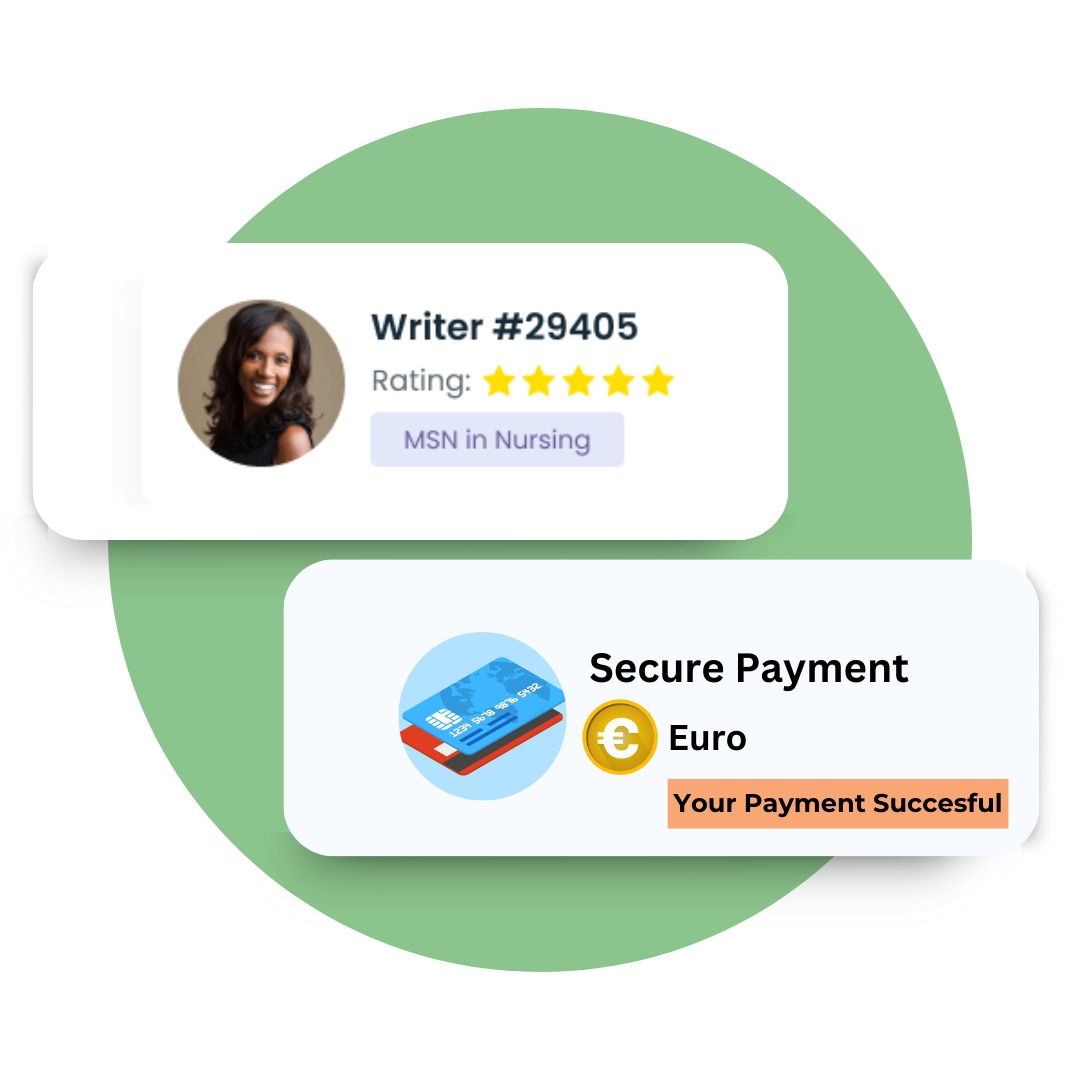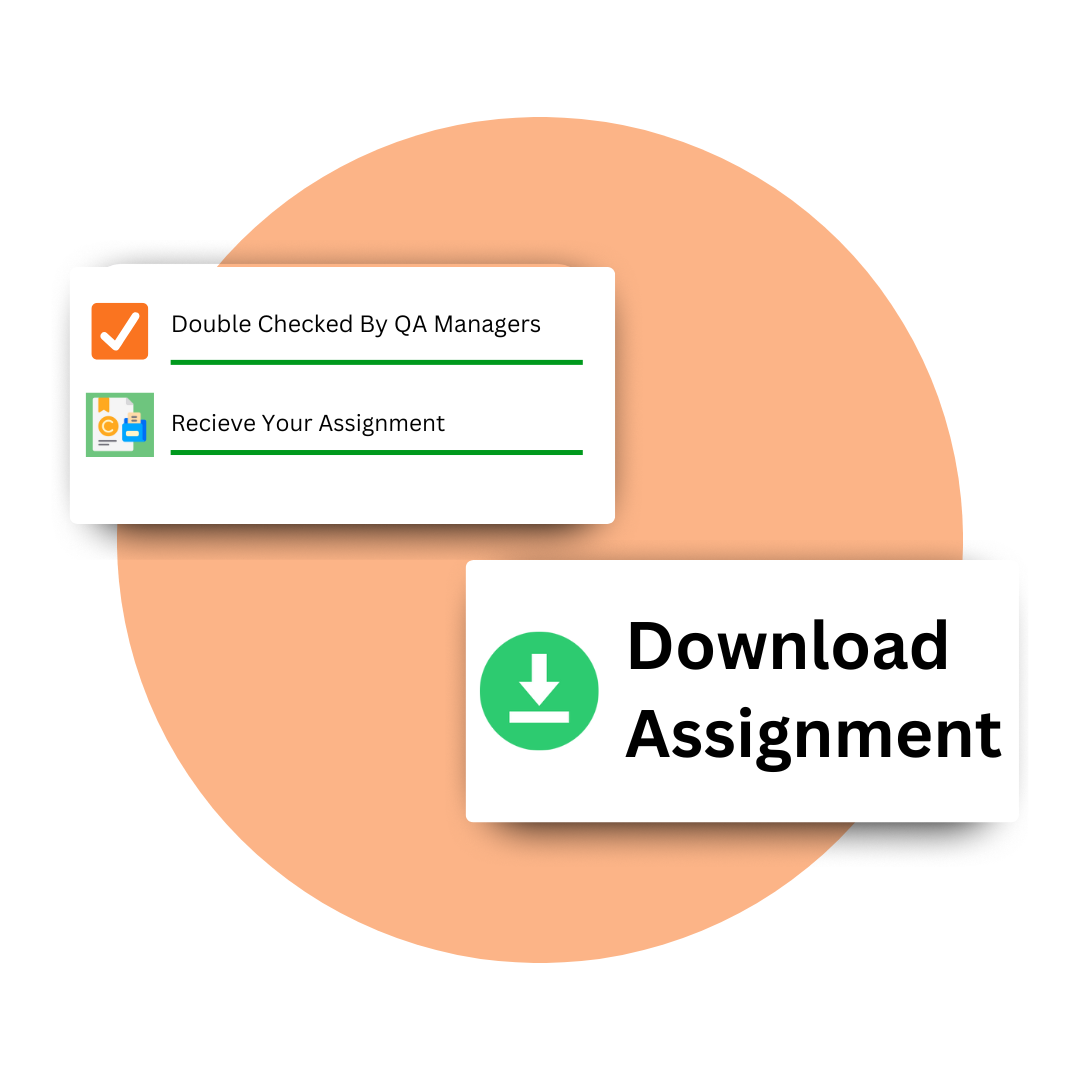Hire experts online and get reliable 3PRM assignment writing help for top-notch results!

All one needs to do is go to the online form and enter details of the assignment; in addition, add any special instructions as may be necessary.

Make the secured payment to begin with the assignment. You can securely make payment via our online website.

Our experts will complete your 3PRM assignment, which will be 100% human-written, and deliver it to you before the stipulated deadline. Worry not when we are here!
We have professionals who possess rich knowledge and experience regarding project, program, and portfolio management (3PRM), keeping in mind delivering the best expertise according to the requirements of the problem.
The professional writers we have on board will craft authentic content we guarantee is completely free from artificial or AI-generated content—to say nothing of plagiarism—maintaining the highest possible academic integrity levels.
We ensure that you have the right help when you need it. With our dedicated customer support team, feel free to reach out to us whenever you have a query or concern, and be assured that we are there to make your experience hassle-free, from start to finish.
We provide you with competitive rates at no compromise on quality. Our services are designed to be accessible to students, providing you with value for money.
Module 3PRM in the CIPD Level 3 Certificate is considered to require the integration of both theoretical and applied knowledge in performance and reward management. With our native experts writing on your 3PRM assignment answers, we guarantee you an A+ grade in your assignments.
Experts at cipdassignmenthelper.ae will ensure you pass even if you have issues related to the workload or when you need better grades; our professional writers will provide you with customised content and timely submission so you can submit your assignments for the course confidently to deliver perfect results while resting and working on your academic studies.
Performance management is the strategic approach to ensuring that the performance of employees matches up with the organisational goals. Why is it important?
Goal Alignment: It aligns individual and team objectives with the overall organisational goals. This way, everybody works effectively towards shared objectives.
Employee Development: The regular feedback given to employees helps them know what they are good at and where they need improvement. Therefore, performance management creates an environment of continuous personal and professional development.
Improved Motivation: Clear expectations and the acknowledgement of performance improve the motivation of employees and job satisfaction.
Increased Productivity: Well-designed performance management increases productivity because people focus more on getting specific, measurable outcomes.
It is really important to know and apply a proper performance management system because it ensures that every individual in the organisation works for the same organisational goal and their work is identified.
There are four steps as part of performance management cycling, helping them continuously be on a trail toward improvement for achieving desired ends. First of all, here’s one:
Goal Setting: formulating Specific, Measurable, Achievable, Relevant and Time-bound that meet defined targets by SMART.
Ongoing Feedback and Support: Continuous development to implement ongoing feedback and support assistance throughout the employee’s time. This will help him achieve their set objectives
Evaluation and Assessment: Carry out any sort of formal assessment measures that would be able to present individual performance against said or predetermined targets.
Reward and Recognition: Recognise and reward the efforts to enforce desired behaviour. Create a performance culture in the organisation.
Every step in the cycle of performance management has its role in driving success to an organisation.
Reward management is essentially a strategy to attract, retain, and motivate employees through many different rewards. Some major elements include:
Financial Rewards: This includes salary, bonuses, and incentives. As the primary motivator, most employees link to pay and performance.
Non-Financial Rewards: Non-monetary rewards such as recognition, career development opportunities, or flexible work arrangements can become very motivating.
Benefits Package: This includes health benefits, pension schemes, and paid time off, contributing to the employee’s welfare and job satisfaction.
Intrinsic Rewards: These are directly linked to the job itself—for example, a feeling of accomplishment, responsibility, and personal development that will enhance job satisfaction.
There is a need to balance financial and non-financial rewards in order to come up with a reward system that satisfies various needs.
Reward management is highly effective in motivation and retention. This is how it works:
Motivation: If employees feel that they are rewarded for their efforts, they are likely to remain motivated and committed to the job.
Retention: An overall reward package makes the employees stay longer with the organisation, reduces turnover, and encourages loyalty.
Performance Improvement: Performance-related incentives boost productivity as employees become motivated toward realising their potential.
Employee Engagement: Recognition and reward is a positive work culture, which helps in building belongingness and engagement.
Reward management, when performed appropriately, not only drives the performance of employees but also retains talent and builds a loyal workforce.
In performance management, the best practices are adopted to ensure that the procedures are fair, transparent, and effective. The main aspects include:
Clear Communication: Ensure that the goals set and expectations are clearly conveyed to all employees.
Continuous Feedback: Establish a feedback culture that encourages constant and consistent improvement.
Objective Appraisals: Fair, objective methods ensure performance appraisal, minimising the scope for bias.
Developmental Plans: The inclusion of individual development plans in reviewing performance will lead to skill development and career advancement.
From the above practices, an organisation can create an environment as supportive as it is productive for employees.
Effective reward management practices ensure that rewards are fair, equitable, and aligned with organizational culture and values.
Equitable Pay Structure: Conduct proper market research and implement a structured pay scale to ensure justly ordered pay practices.
Transparent reward policies: There must be clear reward policies to keep the reward policies transparent and, of course, build trust among the employees.
Flexible Benefits: This is the ability to address the needs of different workers through flexible benefits packages.
Recognition Programs: Establishing time-bound recognition programs to celebrate success and enhance staff morale.
Performance and reward management systems require monitoring and evaluation to be effective. Some of the key steps to achieve this objective include:
Regular Reviews: Conduct regular reviews of performance and reward policies.
Employee Feedback: Request employee feedback to understand their perception of the performance and reward systems.
Data Analysis: Use data analytics to track key metrics such as employee engagement and retention, measuring the effects of performance and reward practices.
Continuous Improvement: Change and evolve systems based on feedback and data to continue relevance and effectiveness.
Effective monitoring ensures that performance and reward management systems remain aligned with organizational goals and adapt to changing needs.
Discover why students love our 3PRM assignment help service – expert support, timely delivery, and guaranteed success!
H
Hamdan saif

Only 2 days were left to submit my 3000-word CIPD Level 3 assignment at Leeds Beckett University and I was panicked. But thanks to CIPD Assignmnet Helper who came to the rescue and delivered quality assignments within a day. I had enough time to revise it before submission.
F
Fathima Qureshi

As a student from LEORON Institute, I was afraid to choose an online service for my CIPD level 3 assignment but the result I got from the CIPD Assignment Helper was outstanding. The structure and the coverage of topics were very clear. My instructor had a positive feedback on the assignment. Will be back here soon! Thank you so much.
A
Abu Bakar

I needed a last-minute assignment for my CIPD Level 3 and thanks to the CIPD assignment helper. they delivered a perfectly written assignment that my professor in PwC’s Academy was impressed with and gave me top marks every time I get an assignment I come here and get top marks.
M
Muhammad Al Maqah

I’m a student doing my CIPD course from avodo in Fujairah. I was struggling with my CIPD Level 3 assignment but thanks to this website. I got my assignment within 3 days and the assignment quality was so good that I passed my course with very good grades.
M
Mariam

Thank you for your professional assignment; today i was appreciated by my professors for writing the best assignment and they praised me because of you and they don’t even know that
A
Abdul Hassan

I ordered my CIPD assignment here for the first time and got outstanding results. I got an A+ and saved a lot of time.
Your 3PRM success starts here—let our CIPD experts help!
